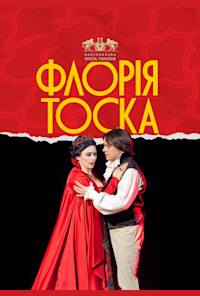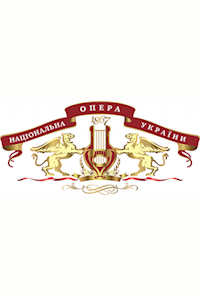Giacomo Puccini's opera Tosca is one of the most popular operas in the world repertoire. The composer was inspired by the famous French actress Sarah Bernard (1844 - 1923), who played with great success in the play of the same name by Victorien Sardou (1831 - 1908). Puccini first saw the play "Longing" in Milan at the Teatro Filodrammatic in 1889. He was not only impressed by the play "Divine Sarah", but also fascinated by the plot of the drama. The action took place in Rome in 1800 - it was a period of fierce political struggle for national liberation and unification of Italy. The tense atmosphere of the play, the sharpness of the conflicts, the drama of the heroes who fought for independence, the freedom-loving pathos of "Longing" - were in tune with the patriotic sentiments of Giacomo Puccini, dear to him as an Italian.
In a letter dated May 7, 1889, the composer instructed his publisher, Giulio Ricordi, to hold all necessary negotiations to obtain the playwright's permission to write an opera based on his work. January 13, 1899 in Paris
Puccini met with Sardis and obtained his consent. Interestingly, the play "Longing", as a possible source of libretto, aroused interest not only in Giacomo Puccini, but also in Giuseppe Verdi and Alberto Franketti.
After the premiere of Giacomo Puccini's opera "Bohemia", together with his regular librettists Luigi Illico (1859-1919) and Giuseppe Giacosa (1847-1906) began to develop the script. At the heart of the work, as always in Puccini, is the love drama that found its fullest, generous Italian embodiment in Tosta. The priority of the love line, lyrical orientation becomes a distinctive feature of the opera's drama (even Baron Scarpia sings lyrical arioso). At the same time, the composer removed minor details from the plot of the play and accelerated the action as much as possible. The image of the main character, Floria Tosca, a talented singer and ardent patriot of Italy, has also changed.
Musicologist Abram Hosenpud said: “Puccini's music added flesh and blood to the melodramatic figures of Sardis. Passionate, expressive, unconquered Longing, noble, courageous, romantically dreamy Cavaradossi, vicious, insidious and cruel Scarpia - three vivid images are clearly embodied in music.
V. Sardou's melodrama, embodied in Puccini's poetic melodies, has acquired the features of a sharp psychological drama of a tragic plan - it is an exciting story about the illusory nature of happiness, about the collapse of hopes under the pressure of life circumstances. Since the fatal meeting of Cavaradossi with Angelotti, the opera develops on the basis of conflicts, clashes, struggles. Arias and duets are imbued with emotion, vivid expressiveness.
The drama of the opera is embodied in the expressive music of the orchestra, intertwined with the solo parts of the singers. Orchestral fragments impress with the richness of the timbre palette, rapidly changing motifs-symbols, reminiscent of the happy dreams of lovers, the inevitability of a tragic outcome.
To create a convincing atmosphere of papal Rome, to recreate the true sound of the bells of the castle of Sant'Angelo, Giacomo Puccini specially went to listen to the morning bells of the surrounding churches. For the party of Floria Tosca, he found a canzone in the Romance dialect, for the shepherd's song he used poems of ancient folk songs, which were presented to him by Lucca resident Alfredo Vandini.
The premiere of "Longing" took place at the Constanta Theater in Rome on January 14, 1900 (conducted by Leopoldo Mignone, starring the diva La Scala Hariclea Darclave). Representatives of culture, journalists, music lovers from the capital, Queen Margarita and members of the government were present in the hall. However, the audience and critics accepted the opera without admiration, the assessments were quite contradictory: supporters of verism enthusiastically greeted "Tosca", others criticized it in naturalism, melodramatism, in the "brutality" of the content.
On March 17, 1900, the premiere of the opera "Tosca" was a great success on the stage of the La Scala Theater under the direction of Arturo Toscanini. Within a year, the opera "Longing" has conquered the leading opera stages in Europe and to this day is very popular with singers. Cavaradossi's arias "Recondita armonia", "E lucevan le stelle", "Vissi d'arte" Tosca belong to the pearls of the world opera repertoire. Among the best performers of the title part are legendary opera singers Maria Callas, Renata Tebaldi, Mirella Freni. Among the modern productions we will note the performance of the London Opera House Covent Garden (directed by Franco Zefferelli).
The premiere of Puccini's opera Floria Tosca took place on the Kyiv stage in the theatrical season of 1905-1906 (conductor Emil Cooper, director Jacob Gelroth, and artist Semyon Evenbach). The famous Italian tenor Giuseppe Anselmi, while touring in Kiev (1907), sang with great success in "Tosca".
In the period from 1918 to 1954, six stage readings of Giacomo Puccini's opera were performed at the Kyiv Opera. On December 18, 1954, another production of "Longing" took place: conductor - Benjamin Tolba, director - Boris Babochkin (popular figure of Russian theater and film actor), artist - Alexander Tsesevich (son of the famous Ukrainian opera singer Platon Tsesevich). The part of Floria Tosca was performed by Lilia Lobanova, Mario Cavaradossi by Vasyl Kozeratsky, and Baron Scarpia by Mykhailo Hryshko. Ten years later, conductor Oleh Ryabov revived the opera, which was popular among Kyiv audiences. The premiere of the opera "Longing" under the direction of the outstanding maestro Stefan Turchak (director - Dmitry Hnatiuk, choirmaster - Lev Venediktov, decoration by Fedor Nirod) in 1979 was especially memorable. The role of Floria Tosca was performed with great success by Gisela Tsypola, highly artistic stage images were created by Anatoliy Mokrenko (Scarpia), Volodymyr Fedotov (Cavaradossi).
This production, which adorned the theater's repertoire for almost three decades, was renewed twice: in 1991 and 2001. Bright images were embodied by Svitlana Dobronravova, Kateryna Strashchenko, Oleksandr Vostryakov, Andriy Romanenko, Vyacheslav Lupalov, Roman Maiboroda and others.
The current production of Puccini's Floria Tosca was conducted by conductor Mykola Dyadyura, director Anatoliy Solovyanenko, artist Maria Levitska and choirmaster Bohdan Plish.
Marina Varzatska-Kostina


